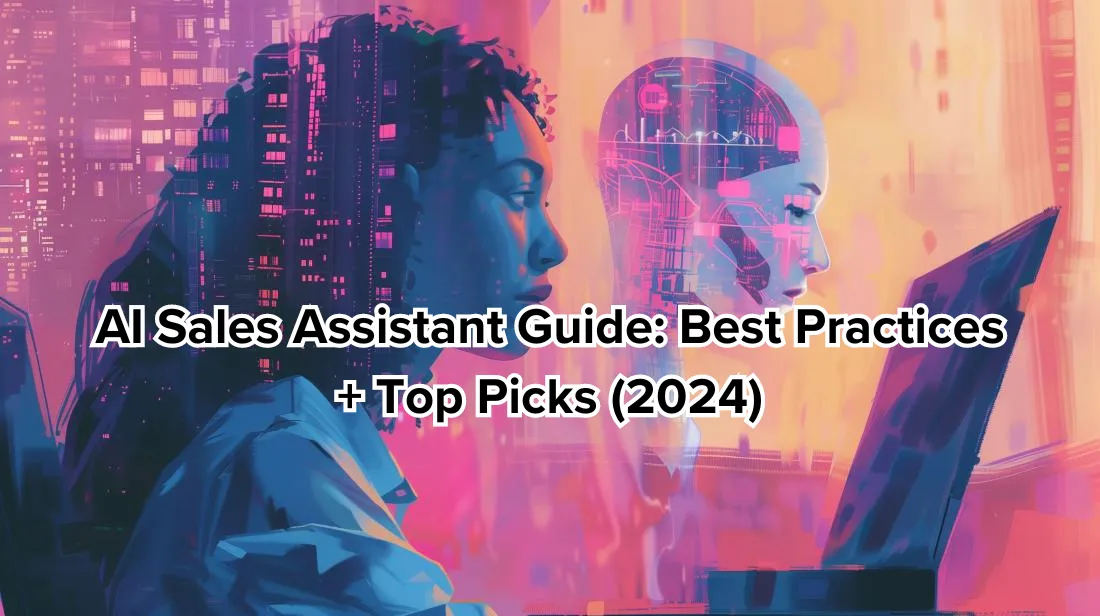In the fast-paced world of sales and marketing, the effectiveness of a sales pitch can be the deciding factor between success and failure. As technology continues to evolve, artificial intelligence (AI) is set to revolutionize the way sales pitches are crafted and delivered. Enter Pitchbot—an innovative AI-powered sales pitch assistant designed to enhance the way sales teams interact with customers. This article delves into what Pitchbot is, its unique features, and how it stands to transform the landscape of sales and marketing.
Contents
- Pitchbot and the Future of Sales Pitches
- What is Pitchbot?
- Why Pitchbot is a Game Changer
- The Power of Natural Language Processing
- Personalized Pitches via Conversational AI
- Key Functions of Pitchbot
- Impact on Sales and Marketing
- Ethical Considerations and the Future of Pitchbot
- Conclusion
- Frequently Asked Questions (FAQ)
Pitchbot and the Future of Sales Pitches
In a world where consumer preferences shift rapidly, sales professionals must adapt quickly to remain relevant. Pitchbot uses advanced AI technology to analyze customer behavior, preferences, and market trends, allowing sales teams to tailor their pitches accordingly. This AI assistant enables sales representatives to deliver personalized messages that resonate with potential buyers, improving engagement and increasing the likelihood of closing deals.
How Sales Professionals Benefit from Pitchbot
Sales professionals can leverage Pitchbot to streamline their workflows, allowing them to focus on what they do best—building relationships and closing deals. By automating the process of creating and refining sales pitches, Pitchbot reduces the time and effort required to prepare for client meetings. Sales teams can quickly generate tailored pitches that address specific customer needs, significantly enhancing their productivity.
What is Pitchbot?

Pitchbot is an AI-driven tool specifically designed to assist sales professionals in crafting effective sales pitches. Its primary goal is to generate messages tailored to each individual customer, thus increasing engagement and boosting conversion rates. By utilizing sophisticated algorithms and natural language processing (NLP), Pitchbot analyzes customer data and feedback to create pitches that resonate on a personal level.
Key Features of Pitchbot
- AI-Driven Personalization: Pitchbot uses customer data to craft messages that cater to individual preferences and interests.
- Real-Time Feedback: Sales teams can receive immediate feedback on their pitches, allowing them to make necessary adjustments and improve their sales strategies on the fly.
- Continuous Improvement: As more users interact with Pitchbot, it learns from their preferences and behavior, continuously refining its ability to generate effective pitches.
Why Pitchbot is a Game Changer
The introduction of Pitchbot into the sales ecosystem marks a significant shift in how sales professionals operate. Here are some of the reasons why Pitchbot is considered a game changer:
Increased Productivity
By automating the pitch creation process, Pitchbot allows sales professionals to dedicate more time to nurturing customer relationships and closing deals. This increased efficiency can lead to higher sales volume and improved team performance.
Enhanced Sales Effectiveness
Pitchbot’s ability to personalize pitches based on customer data means that sales professionals can present more compelling arguments that resonate with their target audience. This tailored approach often results in higher conversion rates and increased sales.
AI Adoption in Sales
As of now, statistics indicate that 74% of sales professionals are utilizing AI in their sales strategies. Pitchbot harnesses this trend by providing a sophisticated tool that aids in connecting with prospects and crafting persuasive pitches.
The Power of Natural Language Processing
At the heart of Pitchbot’s capabilities lies natural language processing (NLP). NLP enables computers to understand, interpret, and generate human language, making it a crucial component of Pitchbot’s functionality.
Key NLP Capabilities Powering Pitchbot
- Language Models: Pitchbot utilizes advanced language models that can comprehend and generate human-like text, enabling it to craft customized sales pitches that feel authentic.
- Text Generation: The tool employs algorithms that synthesize coherent and relevant text, allowing for the dynamic creation of personalized sales content.
- Sentiment Analysis: Pitchbot can detect and interpret customer emotions, which helps tailor the pitch to the customer’s current mood and preferences.
- Intent Recognition: This capability allows Pitchbot to identify the specific goals and objectives of customers, enabling it to address their needs effectively.
Personalized Pitches via Conversational AI
Pitchbot employs conversational AI to engage customers in meaningful interactions. By utilizing advanced language models and text generation algorithms, Pitchbot can discern what customers are looking for and craft tailored responses that resonate with them.
Language Models and Text Generation
The language models behind Pitchbot have been trained on extensive datasets of successful sales pitches. This training allows Pitchbot to generate natural, customer-specific text that effectively engages prospects and increases the likelihood of a sale.
Language Understanding and Dialogue Systems
The dialogue systems integrated into Pitchbot are designed to facilitate seamless interactions with customers. By understanding customer intent and context, Pitchbot can adapt its language and tone to meet the specific needs of each individual, making sales conversations feel more personal and engaging.
Key Functions of Pitchbot
Pitchbot offers a range of features that enhance the sales process and improve customer interactions. Here are some of the key functions of Pitchbot:
Text-to-Speech and Speech Recognition
Pitchbot can convert written sales content into speech that sounds natural and engaging. This functionality allows salespeople to deliver pitches using their own words while still benefiting from the AI’s intelligence. Additionally, Pitchbot can understand and respond to customer speech, making conversations feel more like natural dialogues.
Intent and Context Awareness
By analyzing real-time mood data from users, Pitchbot can identify customer preferences and tailor pitches accordingly. This capability allows sales professionals to modify their approach based on customer reactions, improving the overall effectiveness of the pitch.
Emotional Analysis and Text Overview
Pitchbot’s sentiment analysis goes beyond simply categorizing customer emotions; it provides insights into the underlying feelings driving customer behavior. This deep understanding enables sales teams to refine their messaging and improve customer satisfaction.
Localization and Language Translation
Pitchbot’s multilingual capabilities allow sales teams to connect with global customers by translating pitches and dialogues into multiple languages. This feature is particularly advantageous for businesses looking to expand their reach in international markets.
Impact on Sales and Marketing
The introduction of Pitchbot into the sales and marketing landscape has profound implications for how businesses operate. Here are some key areas where Pitchbot is making an impact:
Enhanced Customer Understanding
Pitchbot’s ability to analyze customer sentiments and preferences enables sales and marketing teams to gain deeper insights into their target audience. This understanding allows businesses to tailor their strategies more effectively and improve overall engagement.
Data-Driven Decision Making
With Pitchbot providing real-time analytics and customer insights, sales and marketing teams can make informed decisions based on data rather than intuition. This data-driven approach can lead to more successful campaigns and improved sales performance.
Improved Sales Performance
By utilizing AI-driven insights, businesses can refine their sales pitches and marketing strategies, leading to higher conversion rates and increased revenue. Pitchbot equips sales teams with the tools they need to succeed in a competitive marketplace.
Ethical Considerations and the Future of Pitchbot
As Pitchbot and other AI-powered sales tools become more prevalent, ethical considerations surrounding their use must be addressed. Key concerns include data privacy, algorithmic bias, and the potential impact on human jobs.
Addressing Ethical Concerns
Businesses must prioritize data privacy by implementing robust protection measures and obtaining informed consent from customers. Regular audits of AI systems can help mitigate algorithmic bias, ensuring fair and equitable treatment of all customers.
Preparing for the Future
As AI technology continues to evolve, Pitchbot and similar tools will likely become even more sophisticated. Businesses must stay informed about emerging trends and adopt AI responsibly to remain competitive in the ever-changing sales landscape.
| Ethical Consideration | Potential Impact | Best Practices |
|---|---|---|
| Data Privacy | Misuse of customer information, lack of transparency | Implement robust data protection measures |
| Algorithmic Bias | Unfair or discriminatory sales pitches | Regularly audit AI systems |
| Impact on Human Jobs | Displacement of sales professionals | Develop reskilling and redeployment strategies |
Conclusion
Pitchbot is redefining the sales landscape by utilizing advanced AI and natural language processing technologies to create personalized and effective sales pitches. By automating the pitch creation process, sales teams can focus on building relationships and closing deals, ultimately improving their overall performance.
As AI technology matures, tools like Pitchbot will continue to enhance sales strategies and customer engagement. However, businesses must remain vigilant about the ethical implications of AI adoption and prioritize customer privacy and fairness. The future of sales is here, and Pitchbot is at the forefront of this exciting transformation.




